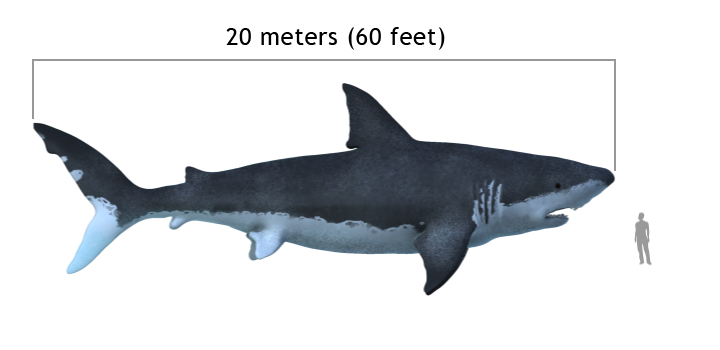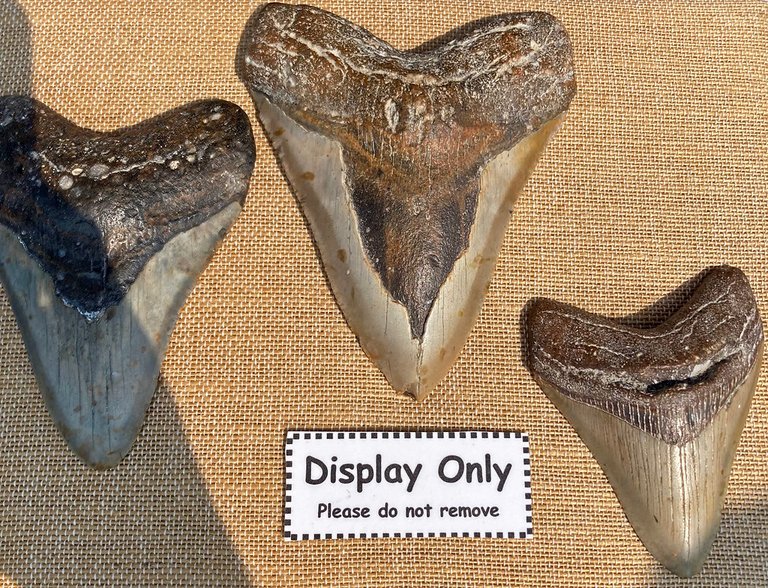Have you heard of the shark Megalodon? I didn't ask if you have seen it in real life because it doesn't exist in our world now but this shark ruled the ocean in its time and it was huge, as big as 20 meters long which is about the size of a Tennis court. It is possible you have seen documentaries where archeologist and shark scientists discuss about this shark from its remains, so what do we know about them?
Megalodon is a shark with its closest relative being the Lamniformes shark like the Great White shark. According to scientists, this shark went extinct about 3.6 million years ago which was towards the end of the Pliocene epoch which ended about 2.5 million years ago.
When looking at how big the sea creature was, teeth of the see monster that has been seen are as long as 18cm from root to tip. The tooth size explains how big the shark was by looking at how big the jaws were. Before you start to ask me questions like why are there no bones to be seen on sharks? The answer is simple, they are not bony fishes, they are cartilaginous fishes and so most parts of their body don't fossilize.
The size might still bring up questions like why were they that big, well the answer would be why were dinosaurs also big? For shark, it would be so they can eat bigger preys in the ocean since we know them to be good hunters. Researchers believed that this sea beast would eat animals like whales from 2.5 meters up to 8m. Talking about their prey, they were believed to feed on Piscobalaena whales as tooth from the sharks were found in the fossils of the whales. Scientists also believed that its body size might be for it to be able to produce heat when needed for itself (Endothermy).
Oh!! I was expecting you to nail me to a cross saying that fishes are cold blooded but wait, not all fishes are cold blooded animals because some of them are regional endotherms which makes them warm blooded in some parts of their body. In our world today, Lamniformes sharks like Great White, Mako, or Thresher which are the closest relatives to the megalodon are regional endotherms. The megalodon was able to keep its head warmer than the temperature of its surrounding water. This shark's teeth has been found in different continent of the world except Antarctica.
Remember me mentioning that Megalodon's closest relative is the Lamniformes but researchers are saying that it could be related to the family of sharks known as Otocontidae which are now extinct. Size was a useful adaptation to the shark until it wasn't during the age of the Pleistocene when there was complete glacier and the world was completely cold (Ice Ages).
Scientists believes that this event led to the extinction of the shark as a result of starvation as the climate change led to the restructuring of where whales ad other mammals the fed on lived. Another set of researchers hypothesized that the former wasn't correct, rather their extinction was a result of the predators becoming preys to bigger sharks like the Livayatan or inability to feed well because other larger sharks appeared and ate what they should have eaten.
Reference
https://www.sciencedirect.com/science/article/abs/pii/S0031018216305417
https://www.nature.com/articles/s41598-020-71387-y#Sec6
https://www.researchgate.net/publication/361094391
https://palaeo-electronica.org/content/2021/3284-estimating-lamniform-body-size
https://www.cambridge.org/core/services/aop-cambridge-core/content
https://www.science.org/doi/pdf/10.1126/sciadv.abm9424
https://www.pnas.org/doi/full/10.1073/pnas.2218153120#sec-3
https://www.ncbi.nlm.nih.gov/pmc/articles/PMC5609766/
https://www.tandfonline.com/doi/full/10.1080/08912963.2022.2032024
https://repository.si.edu/bitstream/handle
https://www.pnas.org/doi/full/10.1073/pnas.1902693116
https://www.newswise.com/pdf_docs/164381917656851


